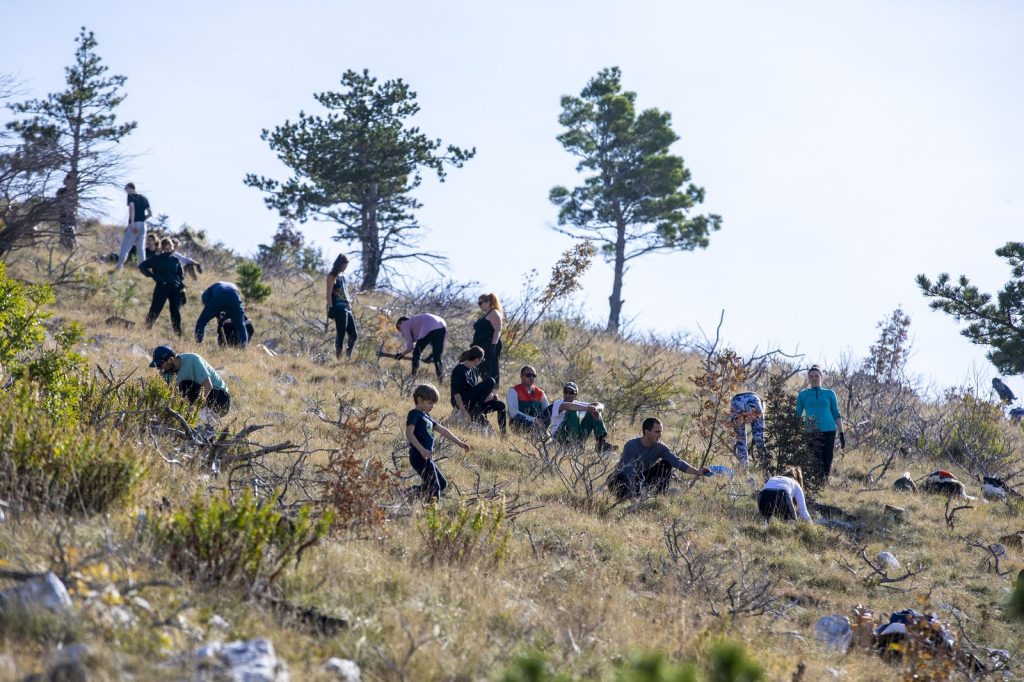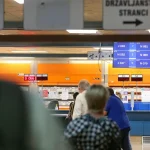When it comes to volunteering abroad, you tend to get back just as much as you give in the form of a wealth of new experiences, the taking in of another culture or language, and an array of things volunteering in your home country couldn’t give you.
Did you know that if you volunteer in Croatia, it’s also a way you can legitimately gain residence if you plan to stay for longer than ninety days?
The rules surrounding becoming a volunteer in Croatia are handled by the Law on Volunteering (Zakon o volonterstvu) and there are two ways in which you can volunteer in this country – short and long-term. Welcome to the world of the udruga (non-profit association/organisation).
How can I find out about volunteering opportunities?
A fantastic resource for finding volunteering opportunities all over the country, even in more obscure locations, is the Zagreb Volunteers’ Centre. This NGO provides all kinds of information for both Croatian and foreign nationals, including facilitating connections between different associations and organisations in different locations, even outside of Croatian borders but within the EEA. They can be found on social media under the name ‘Volonterski centar Zagreb’, and emailed at [email protected].
Short-term volunteering
The first is the simplest of all – volunteering for ninety days or less within a single calendar year, with those ninety days either being in one chunk, or split up into shorter time periods. In this case, you don’t need to apply for residence or have a permit to prove you can stay in the country. While this is by far the simplest way to go about volunteering, it wouldn’t be Croatia without at least a little paperwork, would it?
Work registration certificates
Most foreign citizens who plan to volunteer need to get a work registration certificate (potvrda o prijavi rada), even if they’re not planning on staying longer than ninety days, and despite the fact that they won’t be earning a wage for carrying out said work. You’ll notice I said ‘most’ foreign citizens, and that means that anyone who has foreign citizenship, as well as individuals who hold Maltese, Austrian, British, Dutch or Slovenian passports, require a work registration certificate. All other nationals of the European Economic Area don’t require it (this includes Swiss nationals).
How do I get my hands on such a certificate?
You guessed it, the administrative police station (yet again). In this case, you don’t need to involve the administrative police station responsible for your area of stay, but rather the one responsible for the area in which the headquarters of where you’re volunteering is registered. These certificates can be obtained by either you as the volunteer, or by the udruga you’re volunteering for.
What do I need to provide?
First of all, you’ll need a document (which is an application form) called ‘an application for the issuance of a work registration certificate’ which will be provided to you by the police when you go there. You’ll need to fill it in as instructed on the form, with information including your full legal name, your date of birth, place and country of birth, and the citizenship you hold. On top of that, you’ll also need to make clear the amount of time you require the work registration certificate to be valid for, the type of volunteering you’ll be engaged in, and the exact number of days you intend to spend engaged in it.
You’ll also need to provide the following:
The tourist visa you entered the country with (if applicable to you)
A copy of your passport or government-issued ID card as well as a certified translation into Croatian from whatever language it is in, if that language isn’t English. So, to be perfectly clear there, if your passport or ID card is in English, you don’t need to get it translated.
Proof of the arrangement you’ve entered into in which you plan to volunteer. You can prove this in two ways, either through a partnership agreement or through a volunteering contract. You’ll be provided with one of the above by the organisation you’re volunteering for upon reaching your agreement with them.
You’ll then need to pay a small fee for all of the above in tax stamps. These tax stamps look like your usual postage stamps and are typically required for administrative payments made to the state. You can buy them from kiosks such as Tisak, particular shops which have the words ‘Narodne novine’ on them, banks, courts, some book stores and various other locations, including from notaries. You’re more than likely to find a Tisak kiosk nearby, wherever you are, so that should be your first port of call. You can also buy them from an institution called ‘Fina’, and you’re also likely to find one without much effort.
You will need to come back to that same administrative police station to pay another administrative fee once your work certificate is approved. You will be given a paper payment slip and be instructed on how to pay it. If you’re not immediately told how to pay it, do ask. It is very simple, but if you’re not sure, ask, ask, and ask again.
Long-term volunteering
If you intend to volunteer in Croatia for a period which exceeds ninety days, but no longer than one year in total, then you’ll need to apply for residence in Croatia in order to have a lawfully regulated stay here. In this case, despite the fact that as a volunteer you won’t be receiving a salary for volunteering, you’ll need to apply for a work and residence permit (dozvola za boravak i rad). First I’ll go into what you need to provide when you apply, and then explain a few caveats.
What do I need to provide?
You’ll need to provide a filled in application form for temporary residence (privremeni boravak), which will be provided to you by the administrative police station when you go there to make your application. The form is called ‘1B’ and they are slightly different depending on whether you hold EEA citizenship or not.
A copy of your passport or government-issued ID card and a new photo of yourself (30×35 millimetres).
Your registered address in Croatia. You’ll need another form for that, and there is once again a form for EEA citizens and a form for those who come from third countries, both of which can be asked for at the police station. You’ll be given back an officially stamped copy of this same address registration form. Don’t lose or misplace this because you’ll need it, precisely for this part of the long-term volunteering application, for example!
Proof of you having valid health insurance (this can be travel insurance, foreign health insurance or an EHIC from your home country. You can also of course use the card proving you’re insured in Croatia by HZZO if you’re already insured here).
In many (but not all) cases, you’ll be asked to provide a criminal background check from your home country.
Proof that you have enough money to take care of yourself throughout your intended period of stay in Croatia. You will likely also be asked to show proof of any costs the organisation you’re planning to volunteer for will cover, be that accommodation, food, and anything in between.
Proof that the organisation you intend to volunteer for is registered and headquartered in the Republic of Croatia and that said organisation has a third party liability insurance policy. This requirement doesn’t need to be fulfilled if it is part of the European Solidarity Force.
On top of all that, you’ll also need…
Proof of your agreement with the organisation you intend to volunteer for which includes the period of time you intend to carry out volunteer work for them, a description of the programme, the number of hours you’ll spend volunteering, and the list could be longer depending on your individual situation and the type of volunteer work you’ll be doing.
A volunteer’s contract
This document needs to include many things, so I’ll start with what it needs to say about you as the would-be volunteer. You’ll need to provide the following:
Your full name, your ID card number, your address and your OIB.
The full title, address and OIB of the organisation or association you’ll be volunteering for.
The period of time and location at which you’ll be volunteering.
What exactly you’ll be doing.
Your signature.
The organisation you’re going to be volunteering for needs to provide the following:
The organisation’s obligations towards you as the volunteer, as well as your rights and obligations to them.
The level of safety you as the volunteer will be guaranteed during your time spent with the organisation.
Proof that your rights as the volunteer will be respected and how that will be ensured.
A statement that you won’t be paid for your work, but with details of things that will be covered (such as the cost of food, accommodation or travel) or reimbursements that the organisation will pay for you as the volunteer.
Clauses from the Croatian Law on Civil Obligations and the Law on Volunteering.
The conditions and procedure of and for the termination of the volunteering contract.
The signature of the association or organisation (udruga).
Things to note
A stay and work permit issued to a person in order for them to engage in long-term volunteer work doesn’t allow them to work for a Croatian company in exchange for money.
Once your long-term volunteering is approved, you can volunteer for that same organisation anywhere in the country, if said organisation has multiple outposts, but bear in mind that you’ll need to make another application for a different residence card for each new contracted time period.
There are third country nationals who have attempted to gain temporary residence in this way, thinking that it might be an easy route if they have no other ways at their disposal, but have found it to be quite cumbersome of a task. This isn’t an issue for EEA citizens, because they’re entitled to residence based solely on the citizenships they hold, but for those who don’t have an automatic right to stay in the country for longer than ninety days, just be aware that the volunteering idea isn’t as straightforward as you might think it will be. Even altruism comes with application forms and formal processes.
Volunteering is not a path to permanent residence because the time spent in Croatia on stay and work permits for this purpose isn’t calculated into ‘time spent in Croatia’ to rack up to the five years you need in order to apply for that status. If it’s permanent residence you want, don’t opt for this route.
Make sure to check out our dedicated lifestyle section for more.











